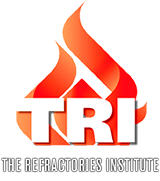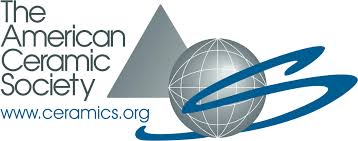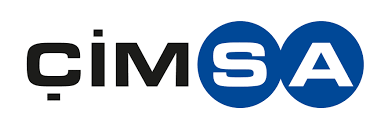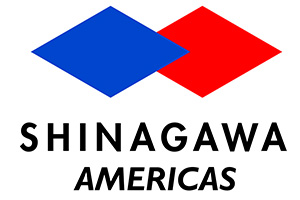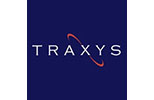The Refractories Institute
ANTITRUST POLICY STATEMENT
Legal Compliance
The central premise of the antitrust laws of the various US jurisdictions
and the competition laws of foreign jurisdictions is that competition
functions best when each competitor makes its business decisions independently.
Trade associations, such as The Refractories Institute (“TRI” or the
“Institute”), are subject to rigorous scrutiny under these laws. Free
and open discussion on matters of interest to the members of TRI is
necessary for the successful operation of the Institute. However,
TRI is ever-mindful and observant of the legal restrictions imposed
by the law on such discussions.
TRI unquestionably promotes the policy of competition served by the
antitrust and competition laws of the various jurisdictions of the
world, is committed to complying with these laws, and appreciates
the consequences of violating these laws can be severe for both the
Institute and its members.
The Federal Trade Commission’s authority in determining what constitutes
an unfair method of competition or unfair or deceptive act or practice
under any given circumstances is extremely broad. As a result, antitrust
actions can be brought to cover a wide range of charges. Perhaps the
most important of the antitrust provisions for trade associations
is Section 1 of the Sherman Act, which prohibits agreements, understandings
or joint actions between two (or more) companies, formal or informal,
that restrain competition. This provision of the antitrust laws is
the primary concern for a trade association’s members because a trade
association, by its very nature, is made up of a group of competitors.
Moreover, Section 5 of the Federal Trade Commission Act forbids unfair
methods of competition and unfair or deceptive acts or practices in
or affecting commerce. It is therefore imperative that no TRI action
restrict competition and that no Institute activity or communication
shall include any discussion which might be construed as an attempt
to impair competition.
Also of critical importance is the fact that the Sherman Act is a
criminal conspiracy statute. Consequently, a member who attends a
meeting at which competitors engage in illegal discussions which relate
to prices or bids may be held criminally responsible, even if he or
she says nothing at the meeting. The member’s attendance at the meeting
may be sufficient to imply acquiescence in the discussion, making
that member liable to as great a penalty as those members who actively
participated in the price-fixing or bid-rigging agreement.
Specifically, members should not discuss issues of pricing strategy,
current, anticipated, or “fair” profit margins, information related
to business relationships, terms of pending or anticipated business
transactions, membership restrictions, division of markets or segments,
standard-setting conduct, self-regulation, credit terms, sales controls,
the process of bidding on current projects or similar such topics
that could be construed to be anticompetitive in nature. This is why
TRI has established an antitrust compliance program to protect the
Institute and its members from possible antitrust liability. Under
this program, every effort will be made to stop any potential antitrust
or competition law violation before it begins.
Antitrust Compliance Procedures
• A full description of TRI’s intention to comply fully with antitrust
and competition laws is included in the written policies of the Institute.
• All members of TRI receive a copy of the Institute’s antitrust policy
statement, detailing what can and cannot be done at Executive Committee,
Board of Directors, and Membership meetings.
• All meetings of TRI, of any type, shall be conducted as though they
were open to the public.
• All TRI meetings are regularly scheduled, and members are not permitted
to hold “rump” meetings.
• Meetings shall be held pursuant to advance notice to all the members
and a distribution of a written agenda prepared by TRI staff in consultation
with the relevant committee chairman.
• No subject matter will be listed on any agenda which is contrary
to TRI policy, its Bylaws, or is violative of the antitrust laws of
the United States of America or the competition laws of any foreign
jurisdiction.
• TRI Counsel updates members concerning antitrust problems periodically
and has formalized the Institute’s antitrust compliance program. A
checklist of specific antitrust “Do’s” and “Don’ts” is included on
the following page. These should be reviewed prior to each joint session
of the Board and Associate Member meeting.
• Accurate and complete minutes of the meetings shall be prepared
and distributed to committee members and meeting attendees.
• The minutes of all meetings are reviewed by TRI Counsel. The minutes
reflect the Institute’s policy of complying with antitrust and competition
laws.
• All Executive Committee, Board of Directors, and Membership meetings
shall be attended by TRI Counsel. The agenda content of other meetings
will determine the necessity for Counsel’s presence at that meeting.
• All TRI business should take place only at meetings of the Institute
and its committees where agendas have been reviewed in advance by
TRI Counsel. TRI’s antitrust policy and attendant procedures apply
to social gatherings incidental to TRI-sponsored meetings as well.
• The Board of Directors is the governing body of the Institute and
has the sole authority to set policy or make a commitment on behalf
of TRI. TRI committees are advisory bodies which, upon a majority
vote of members present, may make recommendations to the Board for
its consideration. Committee members speak only for their companies.
• Should a particular topic of interest or concern arise quickly requiring
immediate consensus or action, a committee survey may be conducted
at the committee chairman’s request through the TRI office. The subject
matter shall be reviewed by staff, reviewed by TRI Counsel, and then
the TRI staff shall conduct the survey. The results of the survey
shall be recorded and a memorandum report prepared, which report shall
be distributed to each committee member.
• TRI Counsel reviews, in advance, all new Institute programs or changes
in existing programs that may have potential antitrust implications.
• No action by TRI which has the effect of rejecting a membership
application becomes final without review by TRI Counsel.
• TRI maintains a formal record retention program.
This document is intended to assist in complying with requirements
of antitrust and competition laws. It should not be considered an
exhaustive presentation of antitrust/competition law requirements.
If you have specific questions, you should seek guidance from your
company’s corporate counsel or TRI Counsel.
Revised: July 21, 2017

